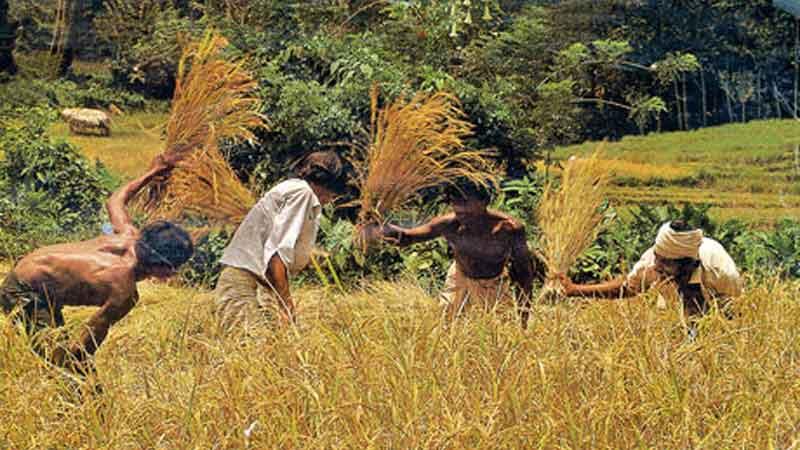
A task force comprising experts in multiple sectors should be set up to promote agriculture and develop micro, small and medium enterprises to manufacture agri-based products for the local and the export market, said Senior Professor of Business Economics, University of Colombo and Chairman Institute of Policy Studies, H.D. Karunaratne.
Elaborating on the strategy to develop a vibrant agri sector for the local and the export market to deal with the ‘post COVID-19 era’ challenges, he said a proper link between agricultural output and industrial input must be created to sustain demand for agri-based products in the country.
“A mechanism must be created for micro, small and medium sector enterprises to make use of agricultural output to manufacture a range of agri-based products such as milk food, rice-flour, biscuits, sweets and all products that are being imported to the country, which will help slash the staggering import expenditure incurred each year,” Prof. Karunaratne said.
He said the home garden expansion project initiated by the government is a good move given the availability of waste arable land, sunlight and water in the country.
However, while such an initiative will help meet household needs and provide an income source it could have downside effects on the income of small and medium scale farmers who need to be supported and encouraged to use modern technology to enhance yield and harvesting.“Sri Lanka has a large public sector workforce at village level that could play a pivotal role to develop agriculture at village level. There are at least six to seven government officials in each grama sevaka division who could disseminate information to a database set up at Divisional Secretariat Divisions which could monitor the data which could be used for district level operations,” Prof. Karunaratne said, adding that a well articulated and implemented strategy will help the country not only to boost food production and achieve self sufficiency but also reduce imports to address the balance of payment shortfalls through the export of agri-based products.
The country spends colossal sums each year to import food items such as milk powder, milk based products, wheat flour and sugar among a range of other products.
The trade deficit rose to US$ 730 million in January this year from US$ 617 million in the corresponding month last year while exports fell by 3.2 percent to US$ 1,005 million in the same period.He said short term strategies to lift the economy which had been slowing down even before the current crisis are vital, but the country needs to go beyond them with strategies based on indigenous resources, culture, abilities and changing consumption and production patterns.
“There are key sectors such as production, distribution, consumption, prices of goods and services, employment, migration, sources of income, technology and education that need to be developed strategically,” he said.
However, he said that no strategy will be successful if it is not communicated effectively to the masses. The government should identify strategies and communicate them to the people to keep the hopes of people alive that the country has the potential to recover and bounce back.
“If people give up hope then the country will be in a worst state having to start all over again. Unlike the Easter attacks, the current crisis has made people lose hope. It is the role of the policy makers to revive them and keep things going.
